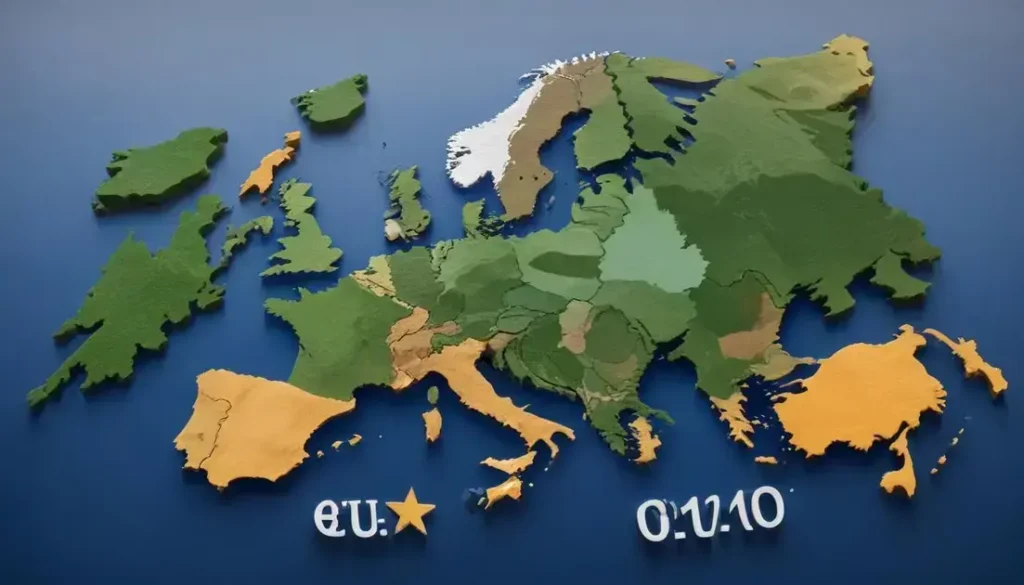The Carbon Border Adjustment Mechanism (CBAM) aims to equalize carbon costs for US exporters, presenting new compliance challenges while offering opportunities for innovation and sustainability in response to EU regulations.
The recent changes to the carbon tax are set to affect US businesses, prompting important discussions about sustainability and competitiveness.
Impact of CBAM on US markets
The Carbon Border Adjustment Mechanism (CBAM) could lead to significant shifts in the US markets. This policy aims to equalize carbon costs between EU and non-EU producers, creating a level playing field. As a result, it could reshape competition for US exporters who may face new challenges.
US businesses often thrive in environments where regulations and tariffs are stable. However, the introduction of CBAM might necessitate adjustments in pricing strategies and supply chain management. Companies importing goods into the EU will need to track and report their carbon emissions accurately.
Moreover, compliance with these new requirements is crucial to avoid hefty fines and barriers to entry into the European market. As the US government considers its response, there could be opportunities for innovation in sustainable practices and technologies. Companies that proactively adopt greener strategies may benefit from enhanced reputations and new market prospects.
Lastly, understanding the broader implications of CBAM is essential for US companies focusing on international trade. By embracing sustainability, US exporters can not only survive but thrive in the ever-evolving global marketplace.
Simplification measures for importers
The introduction of simplification measures for importers aims to streamline compliance with the new Carbon Border Adjustment Mechanism (CBAM). These initiatives are designed to reduce the burden of regulation while promoting sustainability. Importers can benefit from clearer guidelines and reduced red tape, making it easier to align with EU standards.
One significant aspect of these measures is the provision of technical support for businesses. By offering resources and tools, the EU can help importers accurately calculate their carbon footprints. This assistance is invaluable for companies navigating the complexities of CBAM implementation.
Moreover, the simplification efforts may encourage more US businesses to adopt environmentally friendly practices. By reducing compliance costs and easing the reporting process, importers can allocate resources towards developing greener technologies. This shift not only aids compliance but also positions them favorably in evolving markets.
Importantly, these measures intend to foster a cooperative relationship between the EU and US businesses. As companies embrace the sustainability challenge, the simplifications can enhance their competitiveness in global markets, resulting in better opportunities for growth and innovation.
In conclusion, understanding the impact of the Carbon Border Adjustment Mechanism (CBAM) is essential for US businesses looking to thrive in a competitive market. The simplification measures for importers offer a pathway to compliance that can help companies adapt more easily to new regulations.
By aligning practices with sustainability efforts, businesses can not only meet regulatory demands but also improve their market position. Embracing these changes presents a unique opportunity for innovation and growth.
As companies navigate this evolving landscape, it’s crucial to stay informed and proactive. Engaging with the resources available will prepare importers to face future challenges while contributing to a more sustainable global economy.
Frequently Asked Questions
What is the Carbon Border Adjustment Mechanism (CBAM)?
CBAM is a policy designed to equalize carbon costs for imports into the EU, ensuring that foreign producers meet the same environmental standards as EU firms.
How will CBAM affect US exporters?
US exporters may face new compliance challenges and costs, making it essential for them to adapt their practices to meet EU regulations.
What simplification measures are available for importers?
Simplification measures for importers include clearer guidelines and technical support to help calculate carbon footprints and streamline compliance.
Why is sustainability important for businesses today?
Sustainability is crucial as consumers increasingly prefer eco-friendly companies, and regulations like CBAM push businesses to adopt greener practices.
How can US businesses benefit from adopting sustainable practices?
By embracing sustainability, US businesses can enhance their market competitiveness and open up opportunities for growth and innovation.
What resources are available for companies to comply with CBAM?
Companies can access technical support, guidelines, and tools provided by the EU to help them understand and comply with CBAM requirements.


